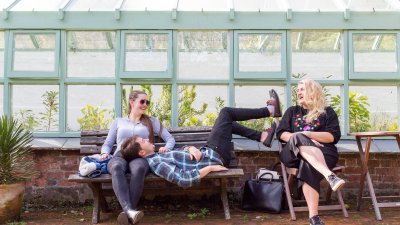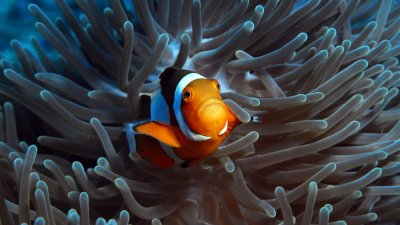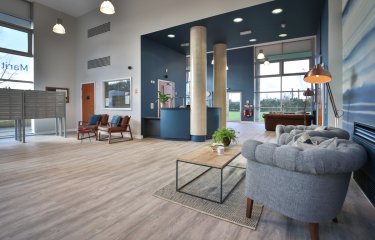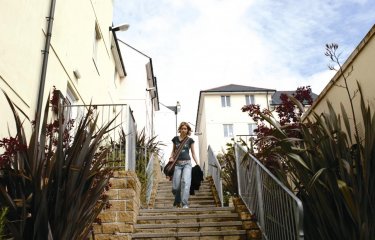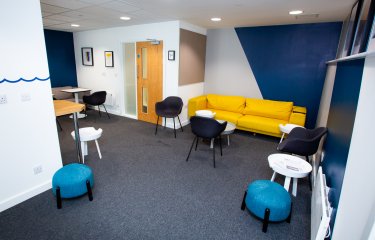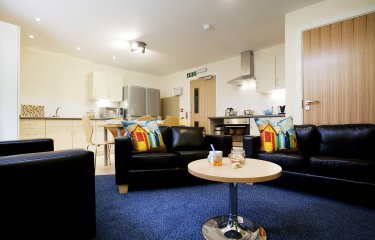Why I chose to study Marine & Natural History Photography at Falmouth University
14 December 2023
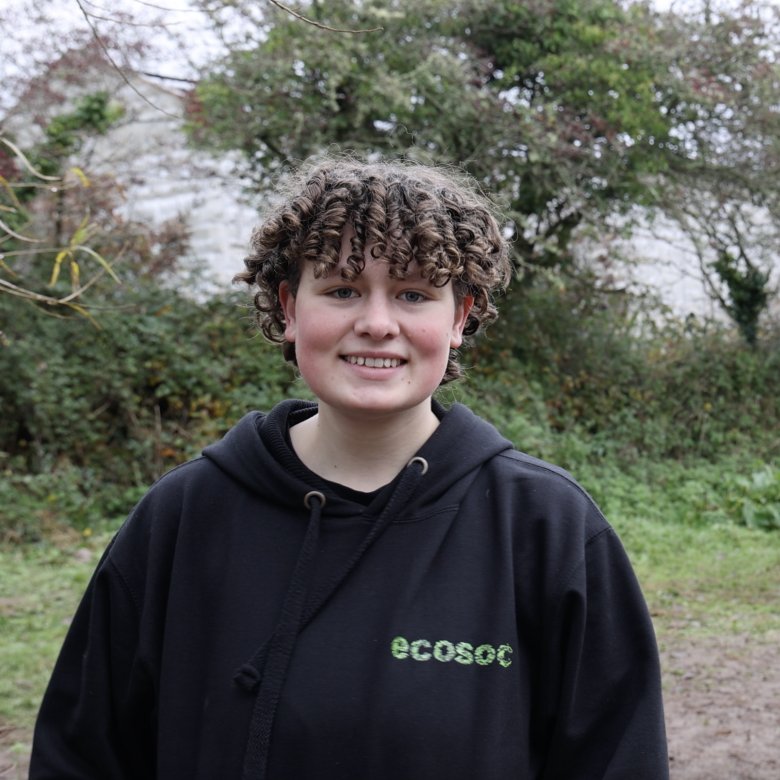
This piece was written by Marine & Natural History Photography student Kate Bannister about her experiences studying in the Institute of Photography.
The idea that I could study the genre of photography that I enjoyed the most was something that drew me to apply to study Marine and Natural History Photography at Falmouth University. At the Open Day I attended, I felt the space was warm & welcoming and it had a creative atmosphere that I could see myself working in. At the Open Day and during my interview, I talked with the experienced lecturers, who seemed keen to help as much as possible and were excited about teaching. The lecturers are practicing in the industry, so they have current or recent experience in the field, which is a valuable resource for students; each lecturer has their own specialties.
The supportive and friendly environment has continued throughout my time on the course so far, with lecturers taking time to talk with me and support my work. In addition to lecturers, friendly, approachable and experienced technicians are always available to help and they have expert knowledge of photography. The staff in the Photography Stores are also very knowledgeable about all the kit they have to offer and are able to help with equipment choices or problems. The Photography Stores hold a vast amount of photography and film making equipment that is accessible to all students. Having access to all the kit is helpful when moving into industry when you might be put behind any type of camera and need to know how to work it. The staff are always happy to help with any issues you might have with kit. Marine and Natural History Photography students gain access to underwater housings used for dive photography. Being able to use this equipment and learn these skills with the support of the dive technicians and lecturers, who are experienced underwater photographers, is something that is unique to Marine and Natural History Photography at Falmouth.
In addition to the photography equipment, the Institute of Photography has amazing facilities including: seven large studios; black and white and colour darkrooms; a digital workspace; a lab with microscopes with camera attachments and a purpose-built bird hide on campus. All these facilities are free to use and create opportunities to experiment with a vast array of photographic techniques. The technicians are flexible in supporting access to all facilities and their various uses.
When deciding which university was for me, I looked at the work produced by students and graduates. The work produced from Falmouth was such high quality. I knew that I would be pushed to produce my best work while studying here. Additionally, I could see a wide variety of styles and subjects. Even within ‘Marine and Natural History’, the options of subjects are broad and the skills learnt can be applied to many different areas of photography and film making. Having some modules dedicated to moving image was also an asset to this course, as photography and film making are such closely linked industries.
Since starting on the course, I have felt encouraged to follow my interests. This has allowed my passion for the natural world and image-making to grow. Being a coastal town, Falmouth is the perfect location to study Marine and Natural History Photography as it is surrounded by sea and countryside. I knew that I did not want to live in a city, so this also drew me to Falmouth. Through societies, coursework and personal interests, I have connected to the wider community in Cornwall and have always felt welcomed by these groups. Penryn Campus is also shared with University of Exeter, so there is a wide variety of students on campus. It is easy to meet people with the same interests through societies and there is a sense of belonging on-campus. Most people have long journeys to get to Falmouth, so everyone is in a similar position being far away from home, so it is easy to adjust to it together. The universities I was considering were all far away from home. I felt anxious about this, but Falmouth is well connected to the rest of the UK by trains and coaches.
